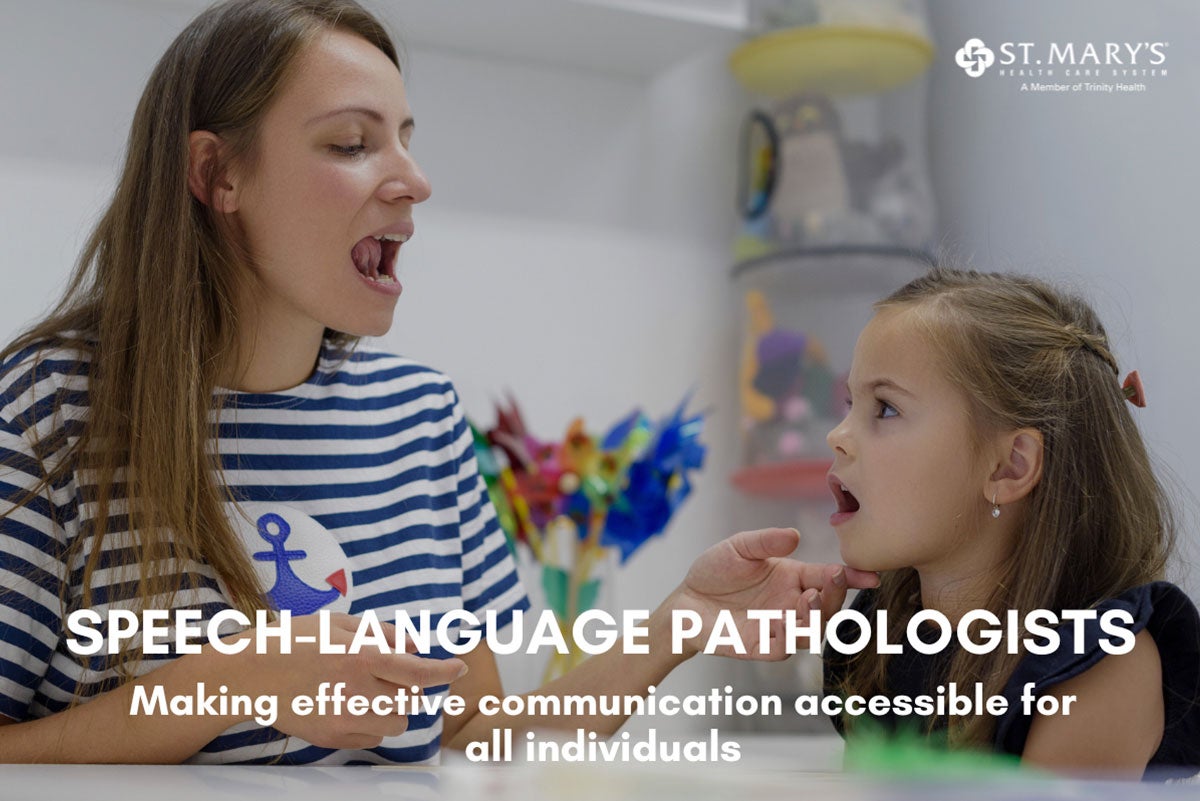How a Speech Pathologist Can Facilitate Stroke Recovery and Rehabilitation
How a Speech Pathologist Can Facilitate Stroke Recovery and Rehabilitation
Blog Article
Exactly How a Speech Pathologist Can Aid Improve Interaction Skills
Efficient communication is a foundation of individual and professional success, yet numerous individuals deal with challenges that hinder their ability to express themselves clearly. A speech pathologist is geared up to deal with these barriers through targeted evaluation and intervention techniques tailored to each person's requirements. By utilizing evidence-based restorative techniques, they not only function to improve speech and language problems however additionally boost general communicative capability. Understanding the complex role of a speech pathologist reveals exactly how their experience can transform lives, welcoming a closer assessment of the specific approaches and end results connected with their practice.
Comprehending Interaction Conditions
Recognizing interaction disorders is crucial for recognizing just how they affect individuals' ability to share themselves and involve with others. Communication disorders incorporate a wide variety of troubles that affect speech, language, and social communication, typically hindering efficient communication. These problems can occur from different factors, including neurological conditions, developing hold-ups, physical impairments, or emotional issues.
Speech problems might materialize as difficulties in fluency, articulation, or voice production, affecting how words are obvious or talked. Language problems, on the other hand, involve challenges in understanding or making use of language, which can impede both non-verbal and verbal communication. Social interaction conditions are identified by problems in the pragmatic facets of interaction, such as taking turns in conversation or understanding social hints.
The effects of communication disorders are extensive, affecting not just the individual's capability to share emotions and ideas yet likewise their social partnerships, educational possibilities, and total lifestyle. Awareness of these conditions can foster empathy and support, encouraging efficient methods for communication and engagement. Understanding the intricacies of communication problems is a critical step in the direction of advertising inclusivity and attending to the requirements of those impacted.
Function of a Speech Pathologist
Speech pathologists regularly play a crucial duty in treating and identifying interaction conditions, employing a series of evidence-based strategies tailored to every person's requirements. These specialists collaborate with people across the life-span, from youngsters with speech delays to adults recovering from strokes or traumatic mind injuries. Their knowledge includes a selection of communication problems, consisting of expression, fluency, language, and voice conditions.
In restorative setups, speech pathologists utilize structured interventions made to enhance communication abilities. They may carry out techniques such as speech workouts, language video games, and social interaction training to help with enhancements in responsive and meaningful language abilities. Speech Pathologist. In addition, they educate customers and their households regarding effective communication methods and adaptive approaches to browse daily communications
Beyond direct treatment, speech pathologists team up with other healthcare educators, professionals, and caregivers to make sure an extensive method to treatment. They advocate for customers by offering resources and assistance, enabling people to achieve their communication objectives and boost their total top quality of life. As professionals in the area, speech pathologists are vital in promoting efficient interaction, promoting self-reliance, and improving social participation for those with communication challenges.
Assessment and Diagnosis Process
The evaluation and diagnosis procedure conducted by speech pathologists typically entails a detailed examination to identify communication conditions precisely. why not try this out This procedure starts with a detailed medical history, where the clinician collects relevant details concerning the person's medical, instructional, and developmental background. Understanding the context of the person's interaction difficulties is important for an exact diagnosis.
Following the medical history, speech pathologists utilize casual assessments and standard examinations to review different facets of communication, consisting of speech audio production, language comprehension, meaningful language, and social interaction abilities. These assessments are customized to the person's age and details problems, giving useful data for evaluation.
Monitoring is likewise an essential element of the assessment procedure, as it permits the medical professional to see firsthand exactly how the specific connects in natural settings. In addition, Visit Your URL interviews with member of the family and instructors can supply understanding right into the individual's interaction difficulties throughout different atmospheres.
When the assessment is complete, the speech pathologist manufactures the searchings for to figure out a medical diagnosis and suggest proper interventions. This thorough evaluation procedure ensures that people obtain targeted assistance customized to their one-of-a-kind communication demands, laying the structure for efficient restorative strategies.
Restorative Strategies and Strategies
Many therapeutic strategies and techniques are employed by speech pathologists to address a selection of interaction conditions effectively. One commonly made use of technique is expression treatment, which concentrates on visit this web-site remedying speech seems through repetition and visual signs. This strategy is especially beneficial for individuals with speech audio disorders.
One more effective approach is language treatment, which improves both expressive and responsive language abilities. This might include interactive tasks that advertise vocabulary advancement, syntax understanding, and conversational abilities. Furthermore, speech pathologists commonly make use of social abilities educating to enhance pragmatic language capabilities, allowing individuals to navigate social interactions more successfully.
Fluency shaping and stuttering alteration techniques are particularly developed to help those experiencing fluency disorders. These approaches help clients develop smoother speech patterns and manage the psychological and physical parts of stuttering.
In addition, augmentative and alternate interaction (AAC) systems are utilized for individuals with extreme interaction problems. These systems, which can include motions, signs, or electronic tools, supply vital support for reliable interaction.
Advantages of Speech Therapy

Additionally, speech treatment can aid in establishing important listening and understanding abilities, promoting better interaction in conversations. People with cognitive-communication conditions can also profit, as therapy concentrates on reinforcing memory and analytical abilities, essential for reliable communication.
An additional important aspect is the psychological support provided throughout therapy sessions. Speech pathologists develop a risk-free setting, encouraging patients to get rid of anxiety and frustration associated to their communication problems. This support can cause improved self-confidence and overall psychological well-being.
Additionally, very early intervention via speech therapy can stop further issues, guaranteeing that people reach their complete communicative capacity. On the whole, the benefits of speech treatment expand beyond mere speech renovation, positively affecting numerous dimensions of life for those impacted by interaction troubles.
Conclusion
In summary, speech pathologists play a critical role in attending to interaction disorders with analysis, medical diagnosis, and tailored therapeutic treatments. By using evidence-based strategies, these professionals improve people' speech and language capacities, cultivating improved clearness, fluency, and social interaction abilities. The advantages of very early treatment underscore the importance of seeking support from speech pathologists, as their expertise can substantially improve communicative possibility, inevitably bring about greater success in both personal and professional spheres.

Speech pathologists often play an essential role in dealing with and detecting interaction conditions, using a range of evidence-based techniques tailored to each person's demands. As specialists in the field, speech pathologists are important in promoting reliable communication, promoting self-reliance, and improving social engagement for those with interaction difficulties.

Report this page